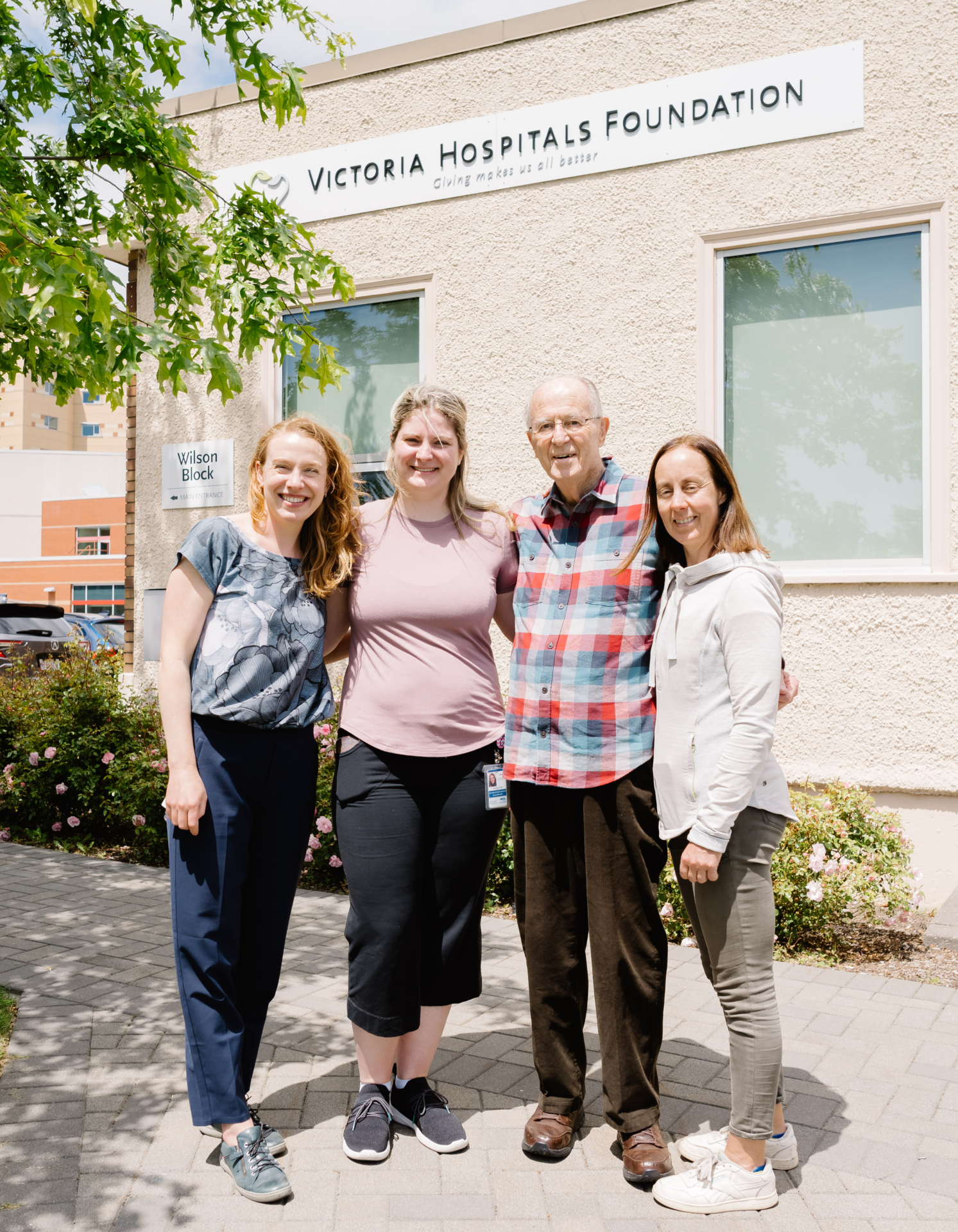
Last summer, following a geriatric assessment, Richard Pearce participated in two programs offered through the Cognitive Health Initiative. Over the past year, the 88-year-old has benefited from a memory class along with a mindfulness course, which are both part of the initiative. This is Richard’s story:
I wouldn’t be where I am now, and I wouldn’t have the same outlook on my future, if I hadn’t had this kind of experience.
Last July, I fell while doing some work in my backyard. It was a hot day. I was cutting back some vegetation and I must have been overtired when I fell onto some gravel. I managed to crawl over to some shade and call out for help. A painter, doing some work at another unit, heard me and ran over to help. He was able to get me inside the house. A few days later I had another incident where I hit my head. At that point, my wife of 65 years, Sylvia said, “you’ve got to do something about this.” Sylvia has always been my biggest supporter. A few weeks later, I saw my doctor who referred me for a geriatric assessment with Dr. Joshua Budlovsky. Following a few tests, he recommended I connect with the Cognitive Health Initiative (CHI) through the Seniors Outpatient Clinic at Royal Jubilee Hospital.
I learned I had Mild Cognitive Impairment (MCI). MCI sneaks up on you, losing cognitive ability happens gradually.
I spent my career teaching science, including at the University of Victoria.. Coming from this background, I was naturally trying to observe and understand what MCI was, and how to live with it. In essence, MCI is an early stage of memory loss and other cognitive ability loss, such as language or spatial perception. It is not uncommon at my age… but still, it can be hard news to digest. These programs made me aware of what I could do to improve myself. It’s all about life-long learning.
What I have learned through taking the CHI-affiliated programs, is that it’s important to maintain your level of cognition.
I was initially referred to a strength and balance course at Royal Jubilee Hospital last fall, which led me to the CHI programs.
The staff were marvelous, patient, and so informative. They help you identify and be conscious of the elements of balance and strength that you may not be aware of. It awakens you to your limitations. There are other patients in the class: some are more advanced than others, so it makes you conscious of your place in the group, and there’s a sense of camaraderie. In some ways, this group also helps fight loneliness.
I really enjoyed the two CHI programs I participated in; they helped open a new path for my future.
Learning the Ropes Living with MCI helped bolster my memory. The program suggested I keep a daily planner where I write everything I need to do and keep a current list of names, contacts and phone numbers. It’s been helpful. The ability to socialize with others is also very important to memory.
There was also an eight-week session called Meditation and Mindfulness. It helped me recognise what the outcomes of some of my reactions could be, and it brought my daily interactions to a different light. I am much more mindful now of social cues.
These are just a couple of the lessons I got out of these CHI programs; there is so much more. You really get a heightened awareness and an education about what’s out there. Getting involved, seeing other people doing it, and seeing people thriving with MCI—that’s key. I can’t speak highly enough of the programs and the staff, they’re very helpful. I really take my hat off to all the people involved, including Danielle, Karla, and Charlotte.
Here is a series of programs that are designed to assist us in identifying whether we have an issue cognitively while experiencing the phenomenon of aging… and that provide us with a vehicle for learning to live with it—live a great life with it.
I am not oblivious to the fact that there are changes and challenges ahead. But, I always remember the fact that the road ahead is not the road behind. CHI is allowing me to keep building this vehicle for my path forward. For that, I am eternally grateful.
The Cognitive Health Initiative or CHI was established in 2017 thanks to a generous pledge of $2.5 million over five years to the Victoria Hospitals Foundation (VHF) by Neil and Susan Manning. The initiative supports cognitive healthcare, delivery and research for patients living with cognitive health issues on Vancouver Island.




